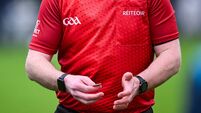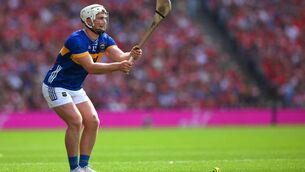Decision not down to Kelly
While this would substantially increase the chances of a landmark change of policy to permit rugby and soccer to be played in Croke Park, Mr Kelly said yesterday that it would 'probably' be a decision for the Management Committee and the Central Council, making it clear, it wouldn't just be a matter of him ruling on it.
"It would not be just a change of rule, but also a change of policy,'' he commented.














